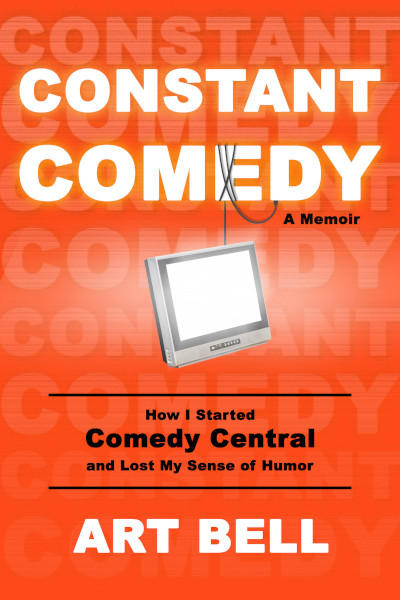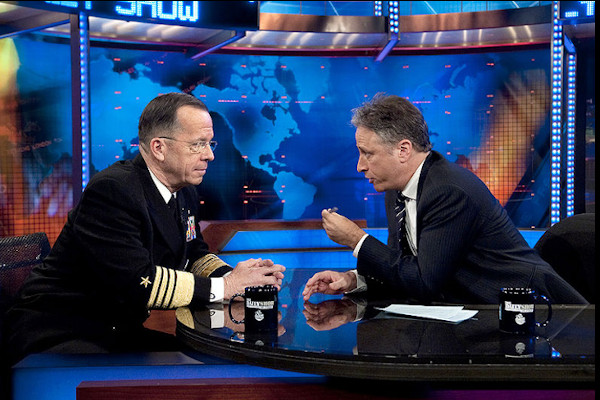How I Started Comedy Central - The Hit Channel That Almost Didn’t Launch

Opinion:
“There’s so much comedy on television all over the dial, why would anyone need a 24-hour-a-day comedy channel?”
This was the verdict from the head of HBO’s head of Original Programming when I pitched my idea to her for an all-comedy channel in the late 1980s. She also said, “What comedians would be on the channel? Their management would just die before they’d let them appear on a comedy channel. Why on earth would HBO risk its sterling reputation in the comedy business by launching a comedy channel?”
And she wasn’t the only skeptic. So many people I spoke with, from co-workers to the executive suite, were dubious. Even those who thought it was a great idea weren’t certain that it could be done.

Yet the idea for a 24-hour all-comedy channel was one I’d been thinking about for years. I loved comedy. During the 80s, new cable channels were popping up on the dial constantly: ESPN, A&E, MTV, and many others. HBO, which I’d joined as a young, mid-level employee, was already deep into the comedy business with lavishly produced standup specials featuring top comedians like Robin Williams, Billy Crystal, and Whoopee Goldberg. Frankly, I was surprised they hadn’t already come up with a plan for a comedy network.
I knew in my heart that it was only a matter of time before someone did create a comedy channel, so I hoped that the idea would catch on with my management before it caught on somewhere else. I kept scheming and refining the idea. I even wrote up a plan with financial projections that nobody at HBO really wanted to see. Then one day I had a casual conversation about the idea with the EVP of business. “Let’s go see the chairman,” he said, meaning then-chairman of HBO, Michael Fuchs. “What, right now?” I asked. “Yes, right now.”
Not only did I not have any presentation materials, I had only the five minutes it took to get to Michael’s office to prepare myself. We walked into his office and took a seat in front of his desk. I described my idea for a comedy network. He asked a few good questions. I gave him a few good answers. The next thing I know, he’s telling me I have three months to do some market research, make a demo tape, and prepare a presentation with all the financial and operational information necessary.

Nine months later, following a blitz of promotion and a ton of press that fostered sky-high expectations, HBO -- arguably the most successful television channel in the country -- launched the Comedy Channel. It was an immediate and resounding failure. I tell about this and all of the other funny and not-so-funny ups and downs of launching the channel in my new book, Constant Comedy: How I Started Comedy Central and Lost My Sense of Humor.
Needless to say, top management at HBO was livid. Michael Fuchs called me and some of the other Comedy staff into his office. Glaring at us, he said, “It took the Comedy Channel to make me lose my sense of humor.” None of us laughed.
But by then it wasn’t just me and my dream for a comedy channel. There were hundreds of people involved, all emotionally invested in seeing the channel succeed. We spent the next few months figuring out what was working and what wasn’t. We decided to add more standup comedy since that seemed to be a sure-fire audience pleaser. And we realized that one of our original shows, Mystery Science Theater 3000 (where “Joel and his robot friends'' watched and wisecracked their way through bad movies) was becoming a cult hit. The channel was floundering, but I knew we had enough going for us to stay afloat while we scrambled to improve.
As if things weren’t difficult enough, six months after our launch, MTV Networks debuted “HA! The Comedy Network.” Now there were two comedy networks fighting for advertisers, audiences, and dominance. The press called the competition “The Comedy Wars,” and we at the Comedy Channel were prepared to fight to the finish. In the fall, we got our first Nielsen ratings that showed our audience was bigger than HA!’s. I was elated—we were on a roll!

Then, just like that, it all came to an abrupt end. We learned that HBO and MTV Networks had agreed to merge the channels. Top executives at both channels were fired, but I was made co-head of programming along with my opposite number at HA!. It was up to us to create a new comedy network from the wreckage. The venture would be run by a newly hired CEO who had most recently been at Fox Television and had no experience in cable television or comedy.
After months of scrambling to make Comedy Channel a success, and faced with the prospect of merging two completely different cultures in order to launch yet another comedy channel, I couldn’t help but feel dispirited. Some said they didn’t expect the new channel to last a year, but I soon found that I was once again surrounded by people -- some from the Comedy Channel and some from HA! -- who were committed to making it a success.
We realized that by pooling our programming resources, the new 24-hour channel had twice as much programming as we’d had before the merger. We brought Mystery Science Theater 3000 and HA! brought all the old episodes of Saturday Night Live, episodes they’d gotten from NBC a few months earlier. We started developing our own shows, including Bill Maher’s Politically Incorrect. We did live special coverage of political events, including the Democratic and Republican conventions, hosted by comedians, our own news brand of news programming that ultimately led to the creation of The Daily Show.

Six years after the launch of Comedy Central, a new management team arrived and immediately began developing an early version of The Daily Show. Then the South Park pilot showed up in the form of an animated Christmas greeting depicting a bunch of kids belting out profanity and blasphemy in equal measure; The new team grabbed it and made it a hit. And a short time later, the new team swept out the remnants of the old, and I was one of those let go.
The day I left Comedy Central, I knew the channel had become what I’d always hoped: the center of the comedy universe. Since then it has exceeded my vision, developing innovative programming and providing a home for burgeoning comedy stars. Next year is the 30th anniversary of one of the most successful cable channels in television history.
Most Comedy Central fans don’t know that Comedy Central almost didn’t get off the ground.
For Highbrow Magazine
Image Sources:
-Courtesy of the author
--Wikimedia.org (Creative Commons)
--Comedy Central channel































































































































































































































































































































